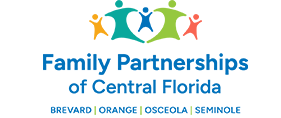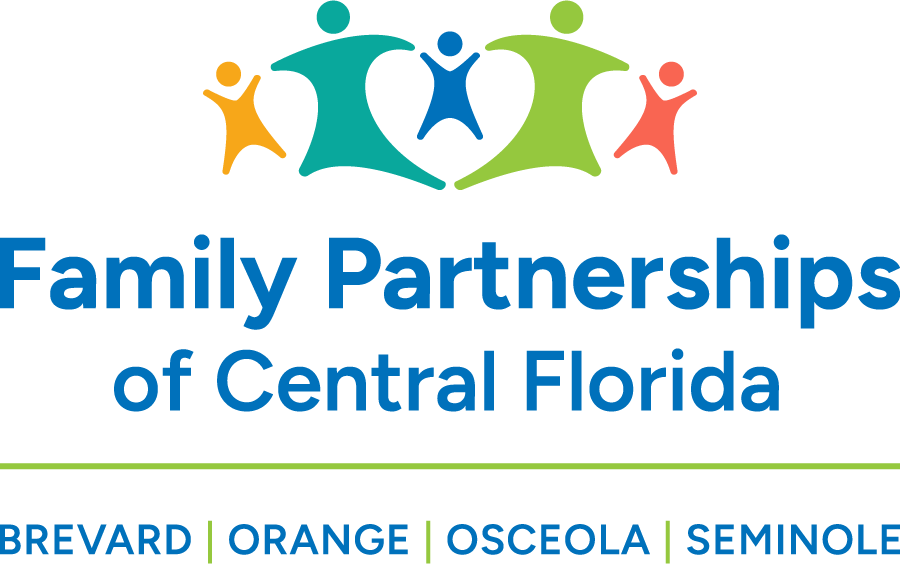History
In October 2012, Family Partnerships began developing a systemwide transformation project to establish a framework for incorporating trauma-informed care (TIC). This initiative aimed to create and foster broad community awareness and knowledge about the impact of trauma on children and families and those who serve and care for them.
The fundamental principle of this initiative it that positive youth development is the outcome of a trauma-informed community of practice. To improve the quality of life for youth in and aging out of foster care, the local child welfare system of care and its partners must understand the evidence supporting TIC and proven strategies to reduce risk and prevent re-traumatization.
Family Partnerships is committed to working as a TIC system. Our goal is to design and provide education, training and technical assistance to agencies that serve children, youth and families who have experienced trauma. Over the years, we have worked to design and launch training opportunities and foster awareness to better understand, apply and integrate trauma-informed care and positive youth development practices.
Brevard Youth Leadership Academy
The Brevard Youth Leadership Academy was officially launched in October 2017. This exciting and innovative leadership program prepares a core group of youth with leadership capacity to learn the critical skills needed to advocate for themselves and system change. Graduates of the academy become members of the Brevard Youth Leadership Council. The academy helps the council be an effective vehicle for youth “voice and choice,” impacting foster care policy and practice change.
The program is implemented by the nonprofit SMILE for Budgie (SMILE) with coordination and support from the Family Partnerships. SMILE provides educational and psycho-social assistance to vulnerable and at-risk youth. All youth deserve the right to access resources and educational opportunities to build and strengthen their skills to reach their full potential. Leadership training contributes to healthy development and well-being and provides practical life skills necessary to function and thrive as an independent adult.
The academy is a six-month training program that builds skills in leadership, communication, team building, problem-solving, decision making, conflict resolution and organizational development. It utilizes experiential learning methodologies, including adventure/recreational, nature-focused/animal-assisted, and creative expression/expressive arts.
This initiative is also implemented with technical support from the Center for the Study of Social Policy, which helps youth understand and enhance youth resilience, social connections, knowledge of adolescent development, concrete support in times of need, and cognitive and social-emotional competence. Brevard Youth Thrive works in partnership with the center as a pilot site of this program.
Phases of Development For a Trauma-Informed and Positive Youth-Driven System of Care
Phase I
- Establish a cross-system committee of champions to lead, guide and direct the initiative.
- Conduct a community scan and assessment.
- Engage key community leaders.
- Secure technical assistance and consultation from national leadership and successful former foster youth.
- Identify youth and young adults to serve on a youth advisory board.
- Devise a mission, vision and brand to market the transformation to identified stakeholders and audiences.
- Convene community-wide summits to introduce the framework and conduct an assessment of need and recommendations. These will feature two extensive kick-off conversations: the first with youth in or who have aged out of foster care and the second with key community leaders and stakeholders. The keynote speakers and facilitators are successful young adults who have experienced trauma and were in the foster care system as children or youth.
Phase II
- Establish and execute an awareness campaign.
- Youth advisory council members discuss ideas and find solutions to real challenges they face.
- Design and launch a web portal to serve as an information clearinghouse.
- Facilitate “knowledge exchange” opportunities.
- Identify and develop curriculum.
- Launch introductory training sessions across identified sectors.
Phase III
- Provide annual training opportunities to provide continuous professional development opportunities.
- Increase public engagement through multiple media platforms.
- Through its TIC/PYD initiative, Family Partnerships’ mission is to:
- Transform the local system of care into a trauma-informed community of practice.
- Achieve positive youth development as an outcome of being trauma-informed in our approach to care.
- Lessen the impact of trauma on children and youth entering the system of care.
- Promote resilience, sustainability, and the health and well-being of children and youth entrusted to our care.
- Impart hope and instill motivation for successful living and the achievement of life dreams.
- Establish critical, meaningful and positive lasting connections for youth aging out of foster care.
Phase IV
- Reduce the trauma of investigations, removal and placement of children in and out of home care.
- Embed the protective and promotive factors and guiding premises into the system of care.
- Identify, develop and define strategies to address policy, practice and training that will result in a trauma-responsive system of care.
- Provide resources, tools and techniques for professionals working with children and families to ensure they are trauma responsive.
- Develop and implement a youth leadership academy to prepare and equip youth with the necessary competencies to serve as emerging leaders.
- Identify partners to provide support to achieve the goal of implementing a youth leadership program.
- Seek out eight to 10 young people to participate in a yearlong youth leadership program.
- Review program candidates and select inaugural youth leadership academy participants.
- Identify supporting adults to contribute to youth leadership programs and determine roles and responsibilities.
- Develop a youth leadership academy training program schedule.
Phase V
- Develop and implement a youth leadership academy to prepare and equip youth with the necessary competencies to serve as emerging leaders.
- Identify partners to provide support to achieve the goal of implementing a youth leadership program.
- Seek out eight to 10 young people to participate in a yearlong youth leadership program.
- Review program candidates and select inaugural youth leadership academy participants.
- Identify supporting adults to contribute to youth leadership programs and determine roles and responsibilities.
- Develop a youth leadership academy training program schedule.
Phase VI
- Youth leadership academy graduates will serve as founding members of the youth leadership council.
- Identify program representatives to serve as representatives on the state-wide youth council.
- Continue the annual youth leadership academy through the selection of the previous class.
- Facilitate an annual trauma-informed care summit, including active participation of the youth leadership academy.
- Resources:
- Principles of Trauma-Informed Care and Positive Youth Development Booklet
- “Children and Youth In Care Want You to Know” Rack Card
- Youth Advisory Council Interest Form
- BYT Result 1: Youth will feel supported, valued, nurtured, and protected
- BYT Result 2: Youth who age out of care will be prepared for independence
- Brevard Youth Thrive History and Overview PowerPoint
- Youth Thrive Brochure












